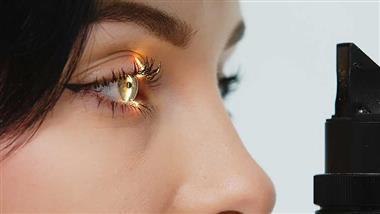
"Diabetic retinopathy is the leading cause of vision loss among working-age adults. Nearly 1 in 3 people over the age of 40 with diabetes already show signs of it - and often, they don't even know it. This condition doesn't start with blindness. It begins quietly, invisibly, as blood sugar slowly damages the delicate vessels in the back of your eye, the retina, long before symptoms appear."
"You might not notice anything wrong until your vision starts to blur, floaters drift across your field of view, or you struggle to read. That's because the early stages of diabetic retinopathy don't cause pain or obvious symptoms. But once blood vessels start to leak or rupture, the damage progresses fast. This doesn't just affect people with long-standing or uncontrolled diabetes. According to the National Institute of Diabetes and Digestive and Kidney Diseases (NIDDK), eye damage begins during prediabetes, even before a formal diagnosis."
"Your Retina Tries to Save Itself - and That's What Starts the Damage According to the National Eye Institute (NEI), diabetic retinopathy begins when high blood sugar weakens the small blood vessels that supply blood to your retina, the part of your eye responsible for detecting light and sending visual signals to your brain. These early changes are painless and often go unnoticed, which is why the damage tends to progress before you ever realize something's wrong."
Diabetic retinopathy affects a large portion of adults with diabetes and often begins without symptoms as elevated blood sugar damages the small blood vessels in the retina. Early damage is painless and may go unnoticed until vision blurs, floaters appear, or reading becomes difficult. Eye damage can start during prediabetes and can also affect women with gestational diabetes. Blocked or leaking vessels can prompt abnormal new vessel growth that accelerates harm. Regular eye monitoring and timely intervention are essential to detect changes early and reduce the risk of advanced, irreversible vision loss.
Read at Natural Health News
Unable to calculate read time
Collection
[
|
...
]